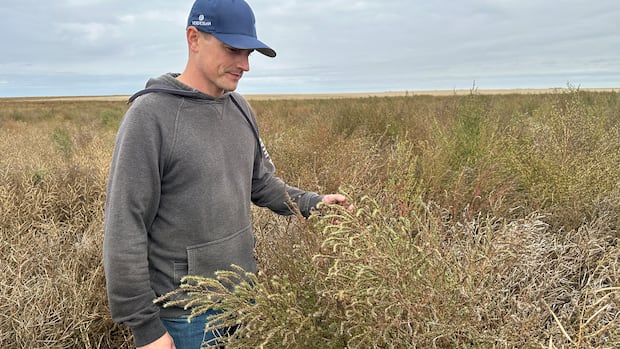A new research project in Regina is using geo-data on discarded needles around the city and pop-up testing sites for sexually-transmitted infections to improve health-care access and reduce Saskatchewan’s high rates of HIV, hepatitis C and syphilis.
The project is a partnership between AIDS Programs South Saskatchewan (APSS) and the University of Regina. The team said the project is the first of its kind in Canada and on Monday they invited media to a mock pop-up testing event to see how it works.
“We are creating maps based on discarded needles, and where there is open drug use and public drug use, and bringing the type of care people need directly to them,” said Heather House, a U of R research assistant involved in the project.
“This is bringing care into the community and meeting people where they’re at.”
The project takes data from APSS’s website Reportneedles.ca, where people can submit reports about discarded needles found in Regina. Since 2021, APSS volunteers have collected more than 38,000 discarded needles.
The geo-data helps researchers determine where the pop-up testing sites could be most effective. The pop-ups will appear in parks, parking lots and at agencies that help vulnerable populations.
Saskatchewan had the worst rate of HIV infections in Canada in 2023, according to a 2024 Public Health Agency of Canada report. The 2023 infection rate was 19.4 per 100,000 people, more than three times the national rate of 6.1 per 100,000.
The province also has some of the country’s highest rates of hepatitis C and syphilis.
Some people are reluctant to seek health care on their own because of discrimination or stigma associated with drug use, APSS executive director Shiny Mary Varghese said, adding that the project hopes to find out if these rapid-response interventions are effective in reducing STI infection rates.
“It’s a little difficult to reach out to people if we are not accessible, so if we go out to people then there are more chances that people are more willing to get tested,” Varghese said.
A Regina project called 3 Infections, 1 Fight is setting up a first-of-its-kind study in Canada.
People can also connect with community supports for sexual health and drug use. The research team includes people like Jason Littleford, who know what users are going through.
“Thinking back to when I was in that position, talking with somebody that had experience or knew what they were talking about would make things a lot easier,” said Littleford, a peer navigator with the project.
“You’re more comfortable speaking to somebody who has an understanding of what you’re dealing with, right?”






